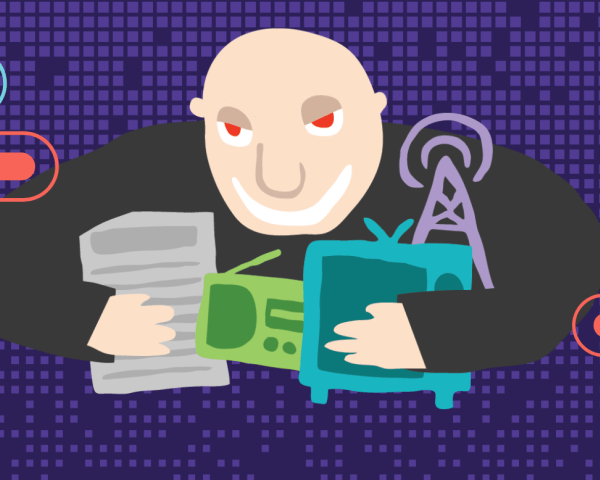
Publishing
People in the United States are reading local newspapers far less than they once did. According to the Pew Research Center, between 2012 and 2022 print and digital newspaper circulation plummeted by 40 percent for weekday news editions and by 45 percent for Sunday editions.
But don’t blame the shortfall on a lack of interest. In 2024, Pew also found that 74 percent of Americans said they had “a lot of” or “some” trust in their local-news organizations. An even larger number (85 percent) believed their local-news outlets are at least somewhat important to their communities. But local newspaper circulation has declined at least in part due to mass consolidation across the sector. As newspaper chains and private-equity firms gobbled up more and more local outlets over the past two decades, they imposed so-called “synergies” on local newsrooms — laying off tens of thousands of reporters and other news-production staff as they became increasingly reliant on syndicated national news stories and even AI-generated copy to fill their pages.
The net effect has been the creation of “ghost papers” and “news deserts” — leaving people across the country with few options for reliable local news and information. Many newspaper owners believe the loosening of consumer safeguards is the path to salvation. Their lobbying group has pressured the Federal Communications Commission to change cross-ownership restrictions, which would allow these media giants to further consolidate their control over local news. These are changes the Trump-era FCC seems eager to implement as long as newspaper owners toe the president’s political line.
Newspaper & Publishing Company Profiles
Follow each company link to learn more about its rating.
- Advance Publications 🐔
- Bloomberg ⭐
- Digital First Media (Alden Global Capital) 🐔🐔🐔
- Gannett 🐔🐔
- Hearst 🐔🐔
- Los Angeles Times (Nant Capital) 🐔🐔🐔🐔
- The New York Times Co. 🐔
- News Corp 🐔🐔
Rating Media Complicity with the Trump Administration
In the Media Capitulation Index, Free Press rates the degree — on a scale of one to five chickens (🐔) — to which each media company has compromised its commitment to independent news and information in exchange for political favors and higher profits, or simply to get the Trump administration off its back. In the rare instance where a company displays admirable independence from the political pressures of Washington, it earns a star (⭐), an ideal of autonomy to which all media must aspire if our democracy is to survive.
In many cases, the question is not “who owns the media?” but “who owns the media owners?” This tracker provides readers with an often disturbing answer.
The Media Capitulation Index Legend
⭐ = Independent
🐔 = Vulnerable
🐔🐔 = Compromising
🐔🐔🐔 = Capitulating
🐔🐔🐔🐔 = Obeying
🐔🐔🐔🐔🐔 = Propaganda

